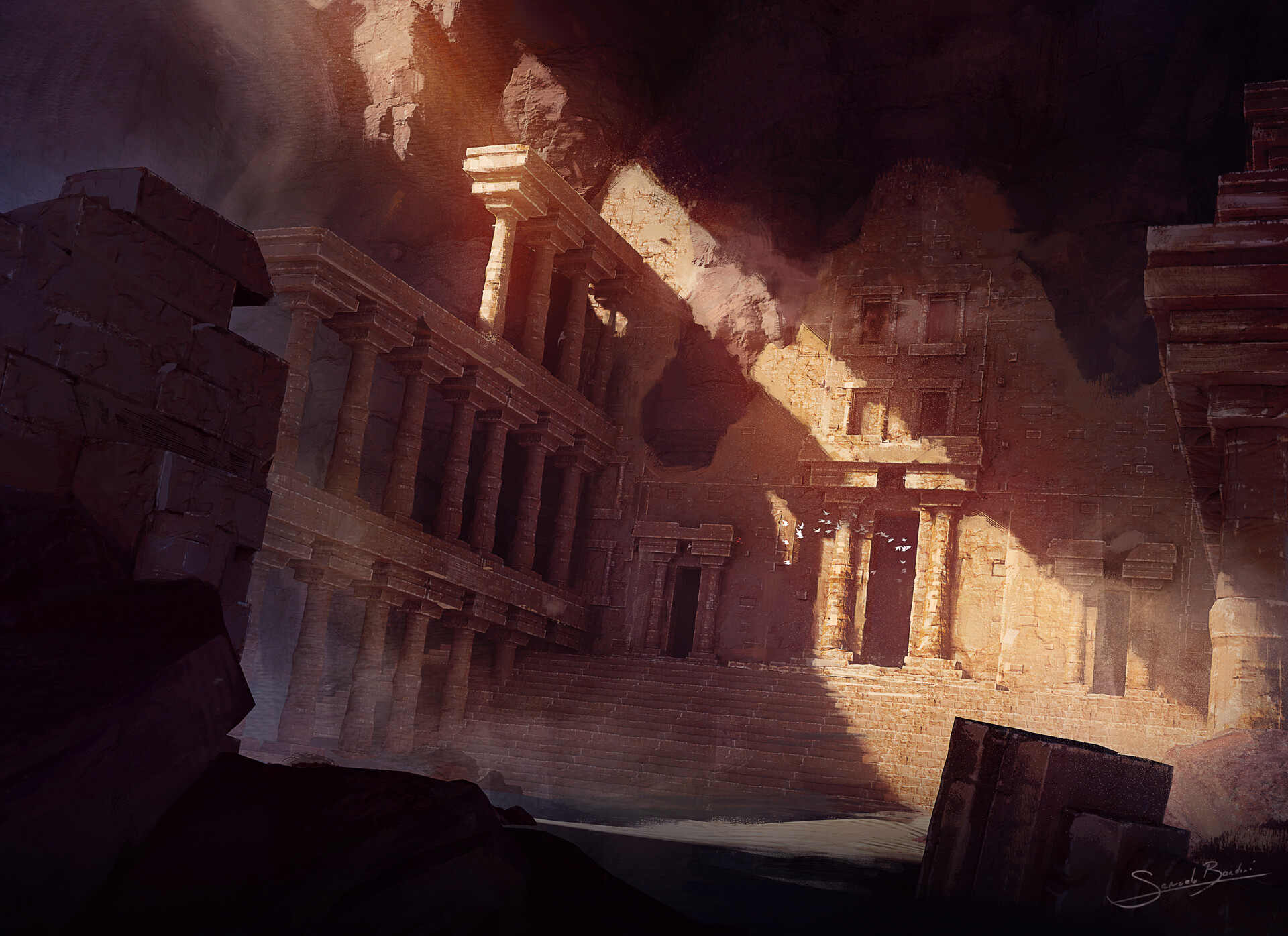This is another essay on the nature of the GLOG. I'm not going to talk about what the GLOG is for everyone, rather, what it is to me. My take shares similarities with many others.
5 people have already defined the entire GLOG better than I. These four links are the closest us gretchlings (a term for GLOGgers) have to an elucidation of our philosophy.
Arnold originated the GLOG. Here is the creator's vision. Includes an intro funnel dungeon that I personally playtested and can vouch for.
Skerples picked up the GLOG and sprinted with it. Take a look at Many Rats on Sticks; it's the most realized GLOG hack for now.
Anne writes up our history as of March 2019 over here. The intro paragraphs do an excellent job of describing us.
A post by a veteran GLOGger, Lexi, who summarizes GLOG very concisely.
Vayra has compiled reasons to move away from 5e and towards the GLOG as well as other essays like this one. If you want the most comprehensive overview, with links to immediately usable material, and more musings on GLOG, go here. This link is the first gretchling-created intro to GLOG.
Before we begin, the answers are not here. They are inside you: what game do you want to run? Where? With who? These questions will have the strongest influence on your GLOG.
Racecars and GLOG Design
As someone who came strictly from 5e, I'll start by talking about the transition. 5e is an ornate, well-tuned, much-played game engine. The published adventures offer an easy pipeline to enjoyable gaming provided you read the owner's manual.
Every roll has a place. Every part slots into the chassis. It's soothing how many decisions are made for 5e users. Slip behind the wheel, fasten your seatbelt, take off. There is nothing wrong with this gaming provided you're comfortable playing the same kind of game every time. The same ride, the same laps, the same Indy 500. 5e can give that to you. What can GLOG give?
 |
| Fuck owner's manuals. |
GLOG is not a delicious Ferrari. GLOG is a jury-rigged piece of shit that eats replacement parts and tools, squats in your garage like a toad, and discharges cloying, acrid smoke with alarming glee.
But it's yours.
Rather than trying to modify a product that does exactly what the manufacturer intended, you can stoop and build your own up with well-worn tools.
Scaffolding and Constitution(s)
To me, games are both math and art. Math demands answers, art merely offers questions. Therefore, RPG's are a never-ending cycle of change. This is good. It also means a couple things for GLOG.
Any GLOGhack is encrusted with scaffolding aplenty. Scaffolding serves to support your structure, not to define or enclose it. All GLOG mechanics are scaffolding.
Us gamers hold many mechanics to be self-evident. HP, XP, levels, ConDexStrWisChaInt. These are all well and good provided they're what you want. If you don't want them, get rid of them. Laws are laws until they aren't. Please don't feel like you have to keep a part of your game around if you don't use it.
You don't have to design every possible interaction your players might have. Mechanics, as concrete things to latch onto, lead to gameplay, so design interfaces for the interactions you want your players to have. Everything else can be decided by a yes, no, quick definition, or a roll.
As an example: I am currently running a game in the Mesoamerican underworld, XIBALBA. I want my players to be able to alter their world through commonly known religious rituals (spells) and drugs, and for my players to struggle against disease. Therefore, I have scaffolding for rituals, drug use/addiction, and disease. Climbing is not particularly interesting to me, so any climbing challenges will be resolved by my players describing what they'll do or a roll.
Combat is a system lots of us struggle to define. Do you want your game to be focused on combat? If not, why make it a complex system? It might seem shocking to decide combat with a single roll, but don't create a pathway for engagement if you have no interest in using it.
That said, don't burn or shred any mechanic that doesn't work. Keep it around. You may find a use for it later. If you build up enough discarded bits and bobs in a compost of sorts, coherent ideas may begin to emerge.
Gretchlings Steal
It's a lot of work to knock together a ruleset. Why reinvent the wheel when you can take it from others? All the rules in my GLOGhack that I deemed important but didn't want to write I copied from Many Rats on Sticks by Skerples. Some classes were lifted straight from blogs and other GLOGhacks. If someone made a pretty shiny thing I liked, I took it.
The majority of XIBALBA has been cribbed from Veins of the Earth and a hexcrawl Skerples wrote for VotE.
Us GLOGers maintain an Excel spreadsheet with all the GLOG classes and rulesets ever written. As of writing, there are 474 unique classes and 28 distinct GLOG hacks. There is much to steal from here, and we share gladly.
This makes attribution important. Cite your sources. Yes, that's not theft, but GLOG contains many contradictions.
Symmetry
Symmetry makes design easier to understand. Part of it is reuse, part of it is the partitioning humans apply to all things. If your system is roll-under, low values should probably be desirable in many categories. Attack rolls, saves, initiative rolls, etc.
One gene commonly cited as a GLOG identifier is the magic system. The power of a spell is determined using d6's. You can add more d6's to power up a spell, but if you roll doubles or triples, Mishaps and Dooms happen. This mechanic has spawned 73 wizard schools.
GLOG is fueled by simple engines like this. I took these Magic Dice (MD) and applied them to Berzerkers (barbarians) and Warlocks. Some people like that take.
The paradox here is that the simplest ideas are often the most effective. When designing GLOG, try not to create mechanics that solve problems. Try to write tools that alleviate problems, dodge problems, or convert challenges into new problems.
Who Solves Problems?
One of the central conceits of GLOG (and the entire OSR) is that players actively solve problems. They do this by engaging with the shared, imagined world, not by asking the DM what kind of skill they need to roll to solve the issue. Try to write mechanics that encourage ways to tackle a problem but don't do the work for a player.
One GLOG saying about mechanics is that they should be like daggers: light, easily adaptable to different problems, and something can be used to kill you. Thanks, Spwack.
Another saying: When mechanics are lackluster, the players are simple and honest. When mechanics are scrutinizing, the players are shrewd and crafty. (Thanks, Vayra). Both types have a place.
Let players discover ways to solve problems. Paths of action should not be binary.
Where Do I Start?
I believe Phlox said this better than me, so I'll link to
that article. To summarize: interesting setting -> interesting system -> interesting PC's. Decide where you want to play a game, create mechanics that you want players to engage with, and then write classes for them to use. If you don't know how to write a GLOG class, welcome! I don't know either. I do know
some that look good, though.
Some tips for classes:
- It's generally accepted that 4 templates (levels in a class) are enough features to create an interesting class. Try giving classes one cool thing per template, with the most interesting things in the first template.
- Don't define everything. Use common sense at the table if necessary.
- Anyone that's never played an RPG before should be able to grok it in a minute. Maybe 2 if it's a spellcasting class.
As for interesting settings and mechanics: that's work you have to put in. I can't make your settings interesting.
What Are Your Qualifications Anyway?
I wrote a GLOGhack so that gives me just as much authority as a farting dog. You can find it
here, in a perpetual state of disarray. I hope there's something worth stealing.
Conclusions
Let there be no conclusions, because endings are false and I am a consummate liar. I hope this essay has been valuable. Trawl the other submissions to this GLOG challenge over at link #5 at the top.
If you still have questions, feel free to drop us gretchlings a line on our blogs or over in the #glog-ghetto channel in the
OSR Discord. Good luck!


